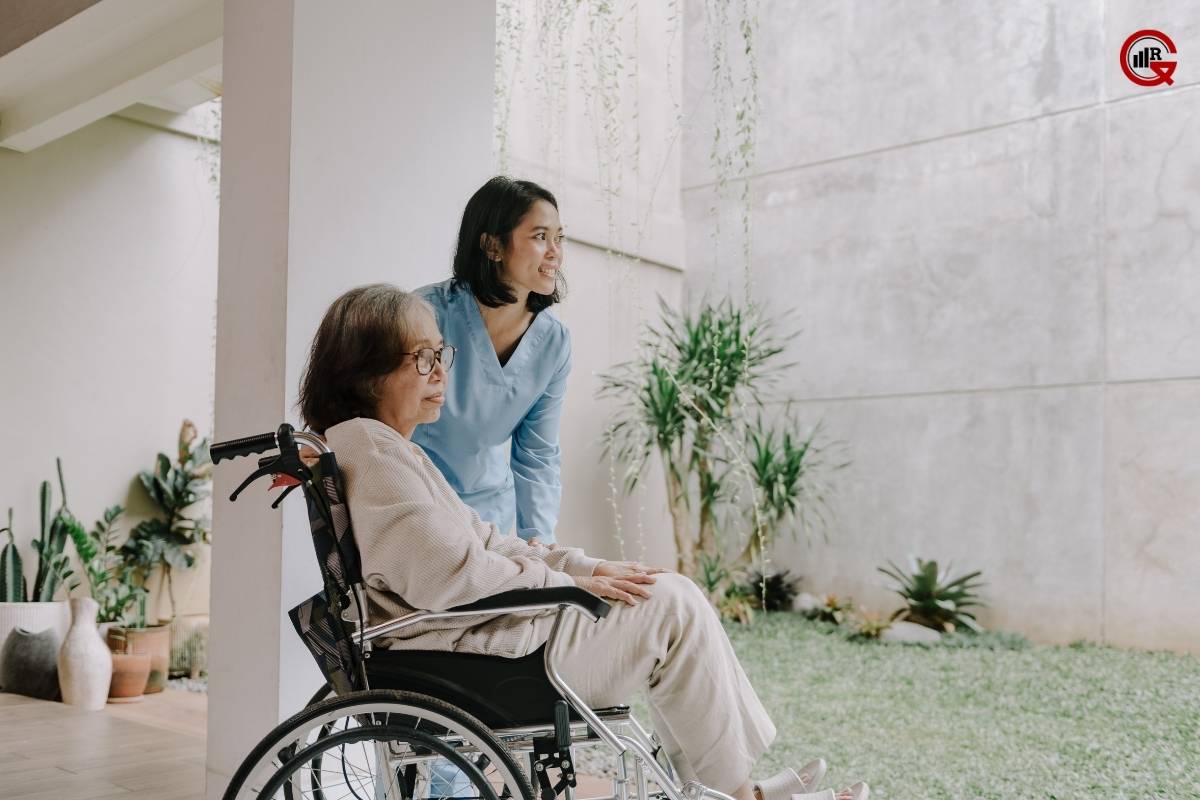As the global population continues to age, the demand for elderly care services has never been greater. It encompasses a range of services and support aimed at meeting the unique needs of older adults, ensuring their well-being, dignity, and quality of life. In this article, we delve into the various aspects of elderly care, including its importance, challenges, innovations, and the evolving landscape of caregiving for older adults.
The Importance of Elderly Care:
It plays a crucial role in addressing the diverse needs of older adults as they navigate the challenges of aging. From physical and medical care to emotional support and social engagement, elderly care encompasses a comprehensive range of services designed to promote independence, dignity, and overall well-being among older individuals. By providing compassionate and personalized care, aged care services enable older adults to age gracefully and maintain a high quality of life in their later years.
Types of Elderly Care Services:
Care services are tailored to meet the specific needs and preferences of older adults, ranging from in-home care to residential facilities. Some common types of adult care services include:
In-Home Care: In-home care services provide older adults with assistance with activities of daily living (ADLs), such as bathing, dressing, meal preparation, and medication management, in the comfort of their own homes. This option allows older adults to maintain independence and age in place while receiving the support they need.
Assisted Living Facilities: Assisted living facilities offer a supportive living environment for older adults who require assistance with daily tasks but do not need round-the-clock medical care. These facilities provide a range of services, including meals, housekeeping, transportation, and social activities, to promote independence and social engagement.
Nursing Homes: Nursing homes provide comprehensive medical care and supervision for older adults with complex medical needs or disabilities. In addition to skilled nursing care, nursing homes offer rehabilitation services, palliative care, and support for activities of daily living.
Memory Care Units: Memory care units are specialized facilities designed to support older adults with Alzheimer’s disease, dementia, or other cognitive impairments. These facilities offer a safe and structured environment, personalized care plans, and specialized programming to meet the unique needs of residents with memory loss.
Adult Day Care Centers: Adult day care centers provide supervised daytime activities and socialization opportunities for older adults who require daytime care or supervision while their primary caregivers are at work or need respite. These centers offer a range of services, including meals, recreational activities, and health monitoring, in a supportive and stimulating environment.
Challenges in Adult Care:

While care plays a vital role in supporting older adults, it also presents a range of challenges for caregivers, families, and society as a whole. Some common challenges:
Caregiver Burnout: Caregiving can be physically, emotionally, and financially demanding, leading to caregiver burnout and stress. Balancing the needs of older adults with other responsibilities can take a toll on caregivers’ health and well-being, highlighting the need for support and respite services.
Financial Constraints: The cost of care services, particularly long-term care, can be prohibitively expensive for many older adults and their families. Limited access to affordable care options can pose financial challenges and barriers to accessing necessary services.
Quality of Care: Ensuring high-quality care and safety standards in elderly care facilities is essential for protecting the well-being and dignity of older adults. However, concerns about staffing levels, training, and oversight can impact the quality of care provided in some settings, leading to issues such as neglect, abuse, and inadequate medical care.
Social Isolation: Social isolation and loneliness are prevalent among older adults, particularly those living alone or in residential care facilities. Lack of social engagement and meaningful connections can have detrimental effects on older adults’ mental and emotional well-being, highlighting the importance of addressing social isolation through community-based programs and activities.
Healthcare Disparities: Older adults from marginalized or underserved communities may face disparities in access to healthcare and elderly care services, exacerbating health inequalities and barriers to care. Addressing healthcare disparities and ensuring equitable access to care for all older adults is essential for promoting health equity and social justice.
Innovations in Elderly Care:

Despite the challenges, innovations in technology, healthcare, and social services are driving positive changes in elderly care. Some notable innovations include:
Telehealth and Remote Monitoring: Telehealth services and remote monitoring technologies enable older adults to access healthcare services and receive medical care from the comfort of their own homes. These technologies facilitate virtual consultations, remote monitoring of vital signs, and medication management, improving access to care and enhancing patient outcomes.
Assistive Technologies: Assistive technologies, such as smart home devices, wearable sensors, and mobility aids, help older adults maintain independence and safety at home. These technologies can assist with tasks such as fall detection, medication reminders, home automation, and personal safety monitoring, reducing the risk of accidents and promoting aging in place.
Person-Centered Care: Person-centered care approaches prioritize the individual preferences, values, and goals of older adults, tailoring care plans and services to meet their unique needs and preferences. By focusing on holistic and individualized care, person-centered care models promote dignity, autonomy, and quality of life for older adults.
Intergenerational Programs: Intergenerational programs bring together older adults and younger generations to engage in meaningful activities, share experiences, and build connections. These programs foster social interaction, combat social isolation, and promote mutual understanding and respect between generations, benefiting participants of all ages.
Community-Based Support Services: Community-based support services, such as senior centers, meal delivery programs, and transportation services, provide older adults with access to essential resources and social support networks in their local communities. These services promote independence, social engagement, and community involvement, enhancing older adults’ overall well-being.
The Evolving Landscape of Elderly Care:

This field continues to evolve, several trends are shaping the future of caregiving for older adults:
Aging in Place: Aging in place, or remaining in one’s own home as one age, is becoming increasingly popular among older adults who wish to maintain independence and autonomy. Aging-in-place initiatives and supportive services help older adults access the resources and support they need to remain safely and comfortably in their homes for as long as possible.
Person-Centered Models of Care: Person-centered care models are gaining momentum as the preferred approach to adult care, emphasizing the importance of individual preferences, values, and goals in care planning and delivery. These models prioritize dignity, autonomy, and quality of life for older adults, fostering meaningful and fulfilling aging experiences.
Collaborative Care Networks: Collaborative care networks bring together healthcare providers, social service agencies, community organizations, and other stakeholders to coordinate care and support for older adults. By promoting collaboration, communication, and continuity of care, these networks improve care coordination and outcomes for older adults across care settings.
Technology-Enabled Care: Technology-enabled care solutions, such as telehealth, remote monitoring, and digital health platforms, are reshaping the delivery of elderly care. These technologies enhance access to care, improve communication between providers and patients, and empower older adults to take an active role in managing their health and well-being.
Aging with Purpose: As older adults continue to live longer and healthier lives, the concept of aging with purpose is gaining traction. Aging with purpose encourages older adults to remain engaged, active, and fulfilled in their later years through meaningful activities, social connections, and contributions to their communities, fostering a sense of purpose and fulfillment.
Conclusion:
In conclusion, elderly care plays a vital role in supporting the health, independence, and dignity of older adults as they age. From in-home care and assisted living facilities to innovative technologies and community-based programs, it encompasses a wide range of services and support designed to meet the unique needs and preferences of older individuals. By addressing challenges, embracing innovations, and promoting person-centered approaches to care, we can create a more inclusive, supportive, and compassionate caregiving environment for older adults, ensuring they can age with dignity, purpose, and quality of life.






